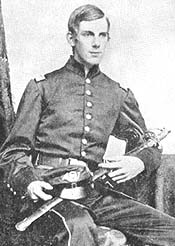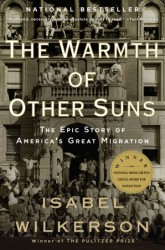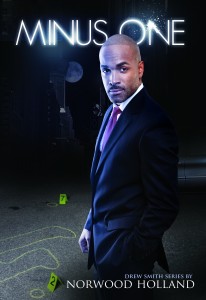Health Care Reform saved by The Magnificent Yankee
June 29, 2012
 I’m no legal scholar, but correctly predicted the Supreme Court would uphold the Patient Protection and Affordable Care Act. That prediction was based on my understanding of stare decisis, the obligation of the courts to honor past precedents. Out of curiosity and for my own edification I read the relevant case history supporting the Commerce Clause arguments. While the government’s reliance on the Commerce Clause struck me as weak and in fact was struck down by the Court I wondered why they did not aggressively argue the Tax and Spending clause. As we all know there are only two things certain in life death and taxes, and the government’s power to tax is indisputable. The Tax and Spending Clause was used as a back up argument while the Commerce Clause argument seem to serve as a red herring.
I’m no legal scholar, but correctly predicted the Supreme Court would uphold the Patient Protection and Affordable Care Act. That prediction was based on my understanding of stare decisis, the obligation of the courts to honor past precedents. Out of curiosity and for my own edification I read the relevant case history supporting the Commerce Clause arguments. While the government’s reliance on the Commerce Clause struck me as weak and in fact was struck down by the Court I wondered why they did not aggressively argue the Tax and Spending clause. As we all know there are only two things certain in life death and taxes, and the government’s power to tax is indisputable. The Tax and Spending Clause was used as a back up argument while the Commerce Clause argument seem to serve as a red herring.
The court was faced with a dichotomy determination and it was Justices Story and Holmes who provided the answer. Roberts writes:
“The text of a statute can sometimes have more than one possible meaning. To take a familiar example, a law that reads “no vehicles in the park” might, or might not, ban bicycles in the park. And it is well established that if a statute has two possible meanings, one of which violates the Constitution, courts should adopt the meaning that does not do so. Justice Story said that 180 years ago: “No court ought, unless the terms of an act rendered it unavoidable, to give a construction to it which should involve a violation, however unintentional, of the constitution.” Parsons v. Bedford, 3 Pet. 433, 448–449 (1830). Justice Holmes made the same point a century later: “[T]he rule is settled that as between two possible interpretations of a statute, by one of which it would be unconstitutional and by the other valid, our plain duty is to adopt that which will save the Act.” Blodgett v. Holden, 275 U. S. 142, 148 (1927) (concurring opinion).
The most straightforward reading of the mandate is that it commands individuals to purchase insurance.” National Federation Of Independent Business Et Al. V. Sebelius, Secretary Of Health And Human Services, Et Al. ___U.S. ___ (2012)
Justice Holmes by reaffirming Justice Story’s dictum provided the necessary constitutional basis to uphold the Health Care Reform Act. Justice Oliver Wendell Holmes Jr. served as on the Supreme Court from 1902-1932. The 1950 Academy Award winning movie The Magnificent Yankee introduced me to Justice Holmes long before I had any interest in law school. The Boston blue blood was a wounded Civil War veteran who saw a lot action. He bequeath his entire estate to the U.S. Treasury and wrote the dissenting opinion in the Lochner vs. New York, 198 U.S. 45 (1905), a landmark case that held a “liberty of contract” was implicit in the due process clause of the Fourteenth Amendment. Holmes accused the majority of judicial activism, pointedly claiming that the case was “decided upon an economic theory which a large part of the country does not entertain. He attacked the idea that the Fourteenth Amendment enshrined the liberty of contract, citing laws against Sunday trading and usury as “ancient examples” to the contrary. He added, “Some of these laws embody convictions or prejudices which judges are likely to share. Some may not. But a constitution is not intended to embody a particular economic theory.”
President Obama has likened the Lochner case to this instant case. Lochner was about limiting the collective bargaining rights of employees in favor of the employer. Roberts in this instant rather than trying to fashion conservative reasoning to overturn the independent mandate he stayed true to the legal doctrines and the fundamental principles of jurisprudence upon which American law is based. Though much credit will be given to Justice Roberts for his decision in upholding the Affordable Care Act he must share that credit with Justice Holmes and Justice Story for mapping the direction.
Thank You Justice Holmes and Justice Story.
The Warmth of Other Suns by Isabel Wilkerson
September 30, 2011

The Epic Story of America’s Great Migration is a testimony to the 20th Century African American struggle when the railroad to freedom was no longer underground but remaining for some a journey no less fraught with danger and resistance. Isabel Wilkerson painfully details the life stories of three migrants who escaped the oppression of the Jim Crow South. From 1915 to 1970 six million Blacks joined the exodus abandoning the confederate states for the promise of a better life elsewhere–most often northern industrial cities. It was a time of lynching, voter suppression, intimidation, systematic disenfranchisement, oppressive labor conditions and terrorism by lynching and bombings.
The title The Warmth of Other Suns is borrowed from Richard Wright’s quote
I was leaving the South to fling myself into the unknown. I was taking a part of the South to transplant in alien soil, to see if it could grow differently, if it could drink of new and cool rains, bend in strange winds, respond to the warmth of other suns, and, perhaps, to bloom. On a broad canvas Wilkerson paints a riveting and moving account of the racism and injustice faced by Blacks throughout the 20th Century and looking back one wonders what did Southern White America expect to gain from Jim Crowism. It ultimately hurt the South retarding its economic development.
Ida Mae Brandon Gladney, George Swanson Starling, and Robert Joseph Perching Foster, were from Mississippi, Florida, and Louisiana respectively. Ida Mae was a cotten picker, mother, sharecropper’s wife and later matriarch. Dr. Robert Joseph Perching Foster a graduate of Morehouse and Meharry escaped the boondocks and bayous to live out the high life he dreamed of but not without his own tales of woe discrimination and humiliation. George Swanson Starling a fruit picker whose labor organizing activities on behalf of blacks forced him to flee Florida with white vigilantes on his heels.
Wilkerson carries us through the life stories of the three sharing their hopes and dreams. We rejoice at their milestones and achievements, despair with their loss and challenges, and finally mourn their deaths. And what do we learn? According to one reviewer “if the Civil War was fought over black freedom, then it appeared during the decades following the war that the South won. Until World War I came along, that is. The Great War marked the beginning of one of the most important and under appreciated revolutions in American history.” We learn the stereotypes of Black Southerners invading northern cities corrupting communities was not so. They brought a strong work ethic, were at higher education level than northern Blacks and Whites, and overall maintained stable married households. If anything they were corrupted.
The Warmth of Others Suns is a scholarly study delivering a history lesson and told through the eyes and in the words of Americans discounted and devalued by white society throughout their lives. It’s a moral story we should never forget. Without such works like Wilkerson’s future generations may never know the full extent of the struggle suffered by those who came before us, and no doubt we stand on the shoulders of giants.
The GOP vs. Organized Labor: Swinging Back
March 4, 2011
The recent events in Madison Wisconsin may indicate the pendulum is swinging back. Support for organized labor and union membership has been on the decline for the past 30 years since Ronald Reagan busted PATCO, and States enactment of right to work laws. At the same time a shrinking middle class and stagnant wages with concentrated wealth held by a few is a reminder of the 19th Century robber barons. It’s all beginning to add up on the average household budget, and the public is finally beginning to realize who’s to blame. One wonders whether they will say “enough” and answer the call to solidarity.
The Governors attempt to label public employees as another privileged special interest illustrates yet again Republican artful efforts at distorting the truth and spreading misinformation. Despite union concessions on wages and benefits Wisconsin Governor Scott demands State employees surrender all collective bargaining rights except on wages. The Tea Party believing the country has been hijacked were shouting to take back the country have unwittingly become the Koch Brother puppets. Their concern should be in replacing the jobs shipped abroad. The country hasn’t gone anywhere. The same can’t be said of jobs.
Public employees did not cause budgetary distress yet they bear the burden of sacrifice while the wealthy and their corporate interest benefit with tax cuts. Since George Bush’s stolen election this strategy of misinformation has conned middle class America. Sucker punched the battered American worker has been knocked down but not out. Now will he get up and come back swinging?





